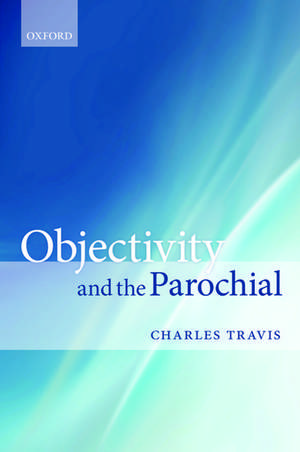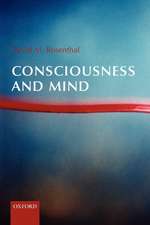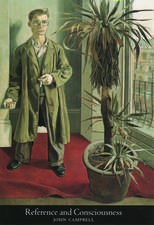Objectivity and the Parochial
Autor Charles Travisen Limba Engleză Hardback – 21 oct 2010
Preț: 675.24 lei
Preț vechi: 966.79 lei
-30% Nou
Puncte Express: 1013
Preț estimativ în valută:
129.27€ • 133.01$ • 108.96£
129.27€ • 133.01$ • 108.96£
Carte tipărită la comandă
Livrare economică 18-24 februarie
Preluare comenzi: 021 569.72.76
Specificații
ISBN-13: 9780199596218
ISBN-10: 0199596212
Pagini: 370
Dimensiuni: 162 x 241 x 29 mm
Greutate: 0.73 kg
Editura: OUP OXFORD
Colecția OUP Oxford
Locul publicării:Oxford, United Kingdom
ISBN-10: 0199596212
Pagini: 370
Dimensiuni: 162 x 241 x 29 mm
Greutate: 0.73 kg
Editura: OUP OXFORD
Colecția OUP Oxford
Locul publicării:Oxford, United Kingdom
Recenzii
Traviss Objectivity and the Parochial is a collection of eleven previously published essays with a new introduction. The volume is philosophically generous, covering numerous themes including, but not limited to, logic and its laws, empiricism, idealism, psychologism, moral thought, thought and representation per se, truth, and the social character of thought.
Notă biografică
Charles Travis graduated in philosophy from University of California Berkeley in 1963. He received his doctorate from UCLA in 1967. In 1966 he began as an assistant professor at the University of North Carolina in 1967. Since then he has worked in 4 countries (plus several others as a visitor), and at quite a number of universities, most recently the University of Stirling, Northwestern University and King's College London. He has also visited at the University of Michigan and Harvard University, and lectured -- on Wittgenstein -- at the Collège de France. He is currently cooperating on projects in the University of Porto and the University of Santiago de Compostela.

















